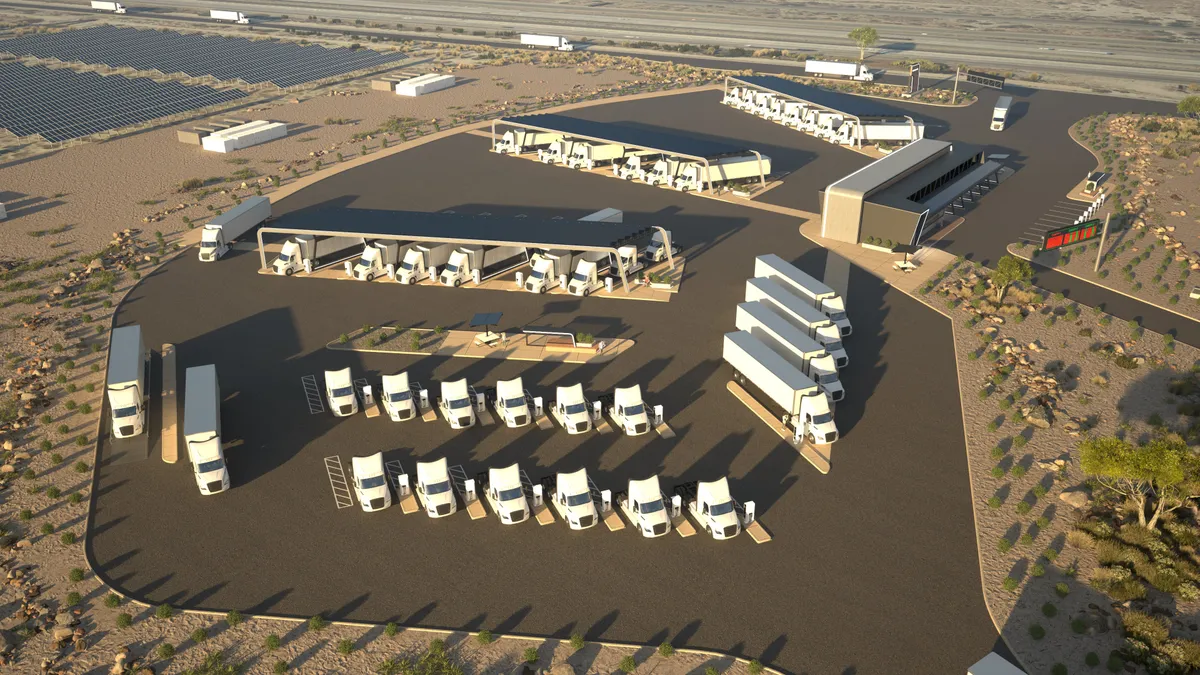Daimler-backed Greenlane is planning to open its first electric charging station next year and endeavors to transform commercial long-haul trucking, CEO Patrick Macdonald-King said.
The project aims to build out a national network for charging and hydrogen fueling for medium- and heavy-duty trucks, where service locations could be spaced about every 100 miles, he told Trucking Dive in an interview Monday.
“We're trying to make distance driving more realistic and a reality,” he said of electric vehicles.
Greenlane will build public charging stations along key corridors, putting its first site in Southern California, the company previously noted. The joint venture is targeting that region along with the Texas Triangle, the region involving Austin, Dallas-Fort Worth, Houston and San Antonio. And Greenlane aims to eventually expand to the northeastern U.S.
The first sites are slated to be online in fall 2024, Macdonald-King said, adding that the venture has secured multiple sites. Information on pricing for charging and refueling at the stations wasn’t publicly available.
Daimler Truck North America initiated the venture in 2022 with partners NextEra Energy Resources and a BlackRock renewable power fund as companies seek to meet environmental, social and governance goals and fleets begin to meet new standards in California and the rest of the U.S.
The trio is sharing the costs of the venture, currently listed at more than $650 million.
To help prioritize lanes and fast-track development, Greenlane is collaborating with Uber Freight over trucking data.
“Uber Freight's vast network data will augment Greenlane's own data analysis to determine corridors that are prime candidates for early HD BEV deployment, charging infrastructure needs, and the addressability of shipping lanes for electrification,” the partnership said earlier this month.
Macdonald said the new partnership will simplify shippers’ transition to electric. Uber Freight also sees the potential for additional synergies, said Olivia Hu, the tech company’s head of autonomous trucking.
“Today, these autonomous hubs are owned and operated by the AV technology developer,” she said. “But tomorrow that could look very different,” noting these could coalesce with truck stops of the future such as Greenlane or completely new players.













